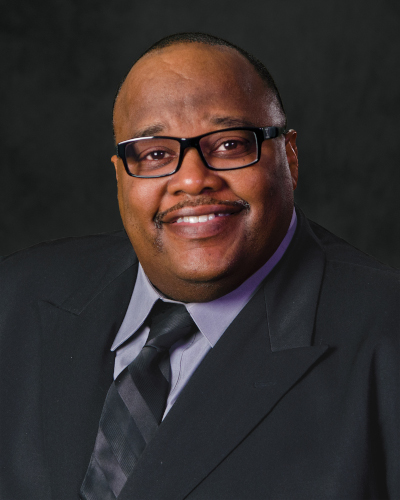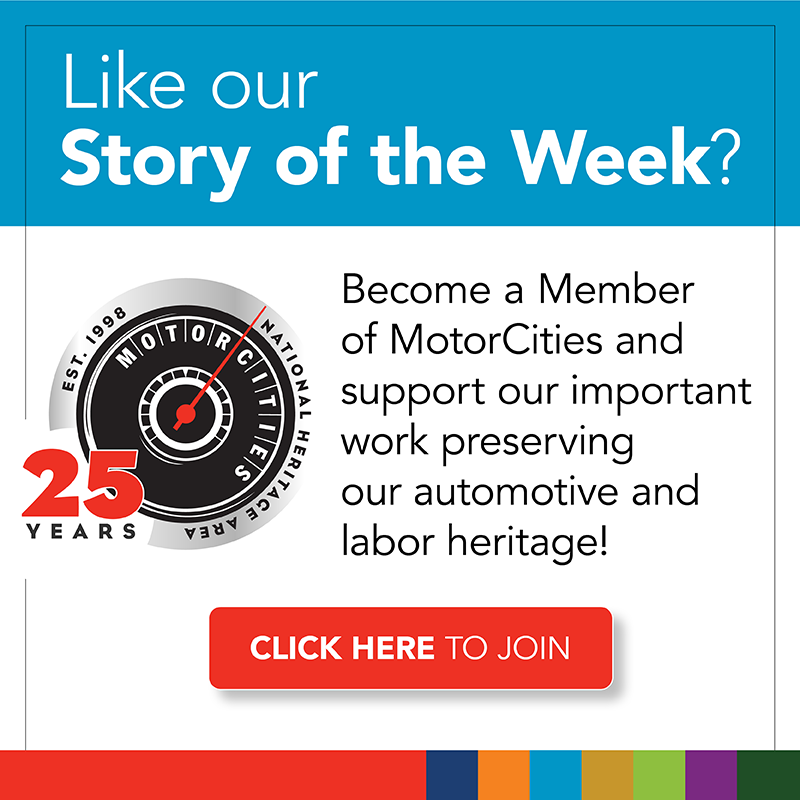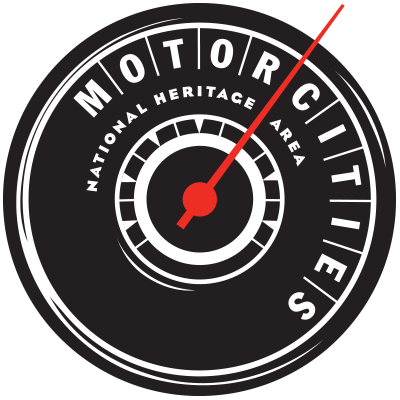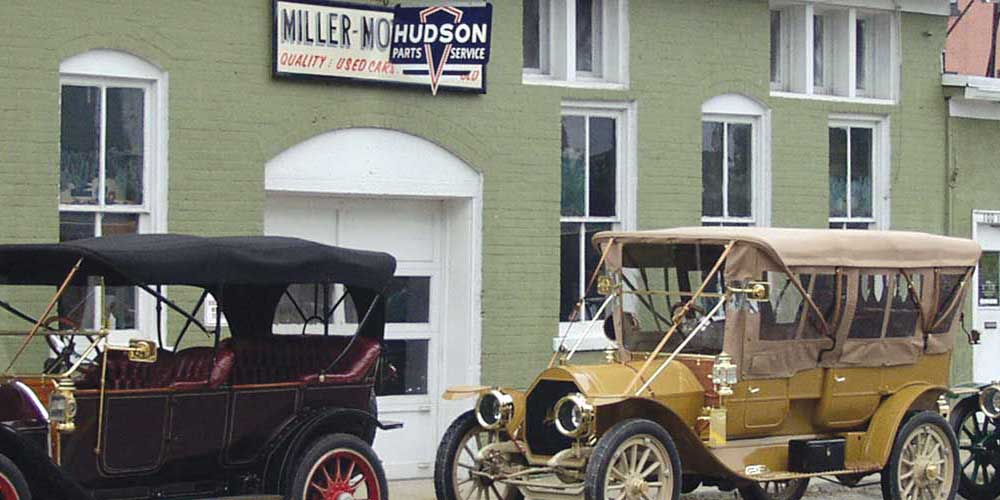
Rory Gamble was elected a vice president of the UAW in June 2018, at the union’s 37th Constitutional Convention in Detroit. On November 3, 2019, he assumed the position of UAW Acting President, as appointed by the International Executive Board. On December 5, 2019, the UAW International Executive Board named him to fill the vacancy of President until the June 2022 Convention. He is the first African American to hold the position of UAW President.
Gamble, a welder fixture repairman, joined the UAW in 1974 when he was hired at the Ford Motor Co. Dearborn (MI) Frame Plant. He immediately became active in UAW Local 600 and has since served in numerous elected and appointed positions. In 1975, Local 600 members elected him to serve as a plant trustee.
From 1976 to 1979, he was the local’s alternate benefit representative. He served as bargaining committee chair in 1984. In 1988, he was appointed staff director and administrative assistant for Local 600’s president, with responsibilities for third-stage grievance agendas for all Ford Rouge plants and as editor of UAW Facts, the local’s newspaper. He was elected delegate to the UAW’s 32nd Constitutional Convention and served on the Constitution Committee.
Since 1987, Gamble’s assignments have included local union health and safety coordinator, employee support services program, education director, civil rights coordinator, fitness center coordinator, and family services and learning center coordinator.
In 1998 and 2003, Gamble served on the UAW-Ford National Negotiating Team. From 1993 to 2002, he was elected to three terms as the local’s recording secretary. Gamble was elected first vice president of Local 600 in 2002 and re-elected in 2005.
In 1999, Gamble received the Spirit of Detroit award. He is also the recipient of the 2006 Horace L. Sheffield Jr. Humanitarian Award and the 2008 Minority Women’s Network (Detroit chapter) Man of the Year award. He is a member of the Coalition of Black Trade Unionists, the Trade Union Leaders Council, the Michigan Humane Society and a life member of the NAACP. He serves on the board of Bridging Communities, a grassroots collaborative of Southwest Detroit businesses, labor organizations, churches and residents.
Gamble is a graduate of the labor studies program at Wayne State University. He lives in Detroit and is the father of five children: Anthony, Rory Jr., Raenard, Rashaun and Rahshidah, and grandfather to 34 grandchildren.
MotorCities recently had the opportunity to interview Gamble about his life and career for Black History Month 2021. Thanks to MotorCities board member Sandra Engle, Assistant Director of the UAW National Education Department, for her assistance.
1. Describe how you got your start with Ford Motor Company?
My dad was a Ford employee and an elected officer in Local 600 in Detroit. I grew up in a union house and we were proud of that. S, when the time came that there were open positions, I applied and started just like everyone else on the factory floor. I was very proud to be a UAW-Ford member like my dad.
2. There are examples of multiple generations of workers who have worked at the Rouge factory. What are your observations of that legacy in the auto industry?
One of my earliest memories is going to a union meeting with my father and seeing one of the sisters stand up and command attention from every member in the room. In that moment, I realized that being in a union gave you a voice and commanded respect and solidarity with your brothers and sisters. It still makes an impression to this day. I’ve never lost that awe for being part of this union.
3. What inspired you to become involved in union leadership?
I grew up with my father as an elected union leader and staff member. My grandfather also was in a union. I understood from a young age what the union could do for families like mine. I’ve had a long career and I’m thankful for the many union mentors in leadership that have helped me through the years. And I’ve been blessed to have my sisters and brothers have enough faith in me to advance me. It was never my plan to be President of the UAW. But fate interceded and put me at a critical time when my union was in trouble. I am so grateful that I could step into this role when my union was in need and do what was necessary to right this ship. I’m grateful to all of those who taught me, all of those who shared their experience and wisdom with me, and all of those who supported me and my family. It’s an honor to be President of the UAW.
But as my father always said, it's really more about what you do with the opportunity to lead than how you got there. I truly believe that.
4. Describe your early UAW days.
I started out working in the plant like my dad. I put in my time and paid my dues. I didn’t seek or expect favors because of my father's position – in fact it was more of a high standard to live up to. So, I just put in my time and worked with my sisters and brothers and got active in the union at all levels including writing the newsletter and working in the community. The best way to be in a union is to participate in the union. That’s what I believe.
5. What are some of the most notable evolutions in the labor movement since you started?
We have come a long way on diversity and women in the workplace since my early days. But we still have a long way to go and it’s one of the initiatives that I want to focus on as president of the UAW. We must continue to encourage women and minorities to get involved and run for office. We need their voices, and we need to support their participation.
Unfortunately, I’ve seen so much opposition at the national level in my time to organizing. But right now, union approval is at a 50-year high. I think that really tells us something. Working people are struggling and unions are the only answer to that struggle. I Honestly believe that right now we are at a precipice for labor. We must make things better for working men and women. It is not OK that we have millions of Americans working two and three jobs just to make ends meet. That is not the America that any of us signed on for.
6. Discuss your ascension to Regional Director, Vice President and ultimately UAW President.
Well, I was blessed to have a lot of sisters and brothers encouraging me to run. I loved and still do love Region 1A. It is my home, and always will be. We did a lot of good in our communities while I was there and I’m very proud of that. And we negotiated good contracts for our members, as well as organizing and adding members. We were a diverse family as a region and that was something I have always been proud of. Honestly, I could have stayed there for the rest of my career.
When the Ford Vice President position opened, it was an opportunity to do good and help my union during a trying time heading into the 2019 contracts. As you know, circumstances put me in the leadership position of President. I did not get there by campaigning or wanting. But when an opportunity to change your union for the better comes at a time when your union needs you, what can you do? You seize the opportunity. I hope I will be remembered for the changes that we put in place to safeguard this union and for the renewed culture and ethics reforms instituted to protect the UAW.
7. Since its creation, the UAW has been connected to racial and social justice efforts. Why is the union so connected to these issues? What sort of activities comprise your current efforts?
We are not and can never be complacent. Things still happen in our plants and workplaces, in our communities and in our country that worry me. But I know this, things have also changed. I’m the first African American President of the UAW and while it may have taken too long, we are here now. We have to be conscious as leaders that it takes work to maintain racial and gender diversity. You can’t be complacent. You have to create a culture and opportunity for it to happen. I think the UAW has always been known to do that. Our history shows many examples. But I think we must always be vigilant, and we must always strive to be better.
8. What does it mean to you to have become the first African American UAW International President?
First and foremost, I am the President of the UAW – it does not matter sister or brother, religion, sexual orientation or race – I am President of all UAW members. The most important thing to me is that I do right by this union. I want to leave more diversity in this union than what we have today. I want to leave a legacy for the next President. I may be the first African American, but I’m focused on building a record that ensures that more will follow in my footsteps. That is truly a legacy to be proud of and it means a great deal to me.
9. As you look to the future of the labor movement, what advice would you give to someone looking to become active in the labor movement?
Being in a union is taking part in your union. It isn’t the International, or the Region’s union, it is your union. We fight for a seat at the table, but you have to take the seat and run with it. So, get involved in your local union committees. Be a voice in your local union and your community. Be the union because you are the union.
10. Of all your accomplishments both in the labor movement and in the community, what are you most proud of?
The work we have done in the community. Whether it is providing lunches for children or book bags or sleeping bags and warm belongings for the homeless. Working with Gleaners to help those who have food insecurity or with community groups that help citizens with heat or needs for the elderly. I am so proud of the thousands of UAW members who took up the cause and worked with me to make others' lives better. I am so proud of UAW members and how selfless they are each and every day. Many people don’t know this, but UAW members always step up to help their neighbors and communities in need. We did it during the wars, we did it during economic downturns and we did it again during this awful pandemic. Our sisters and brothers were among the first on the front lines fighting COVID-19. It’s just what we do, and it has always been what I am most proud of.



